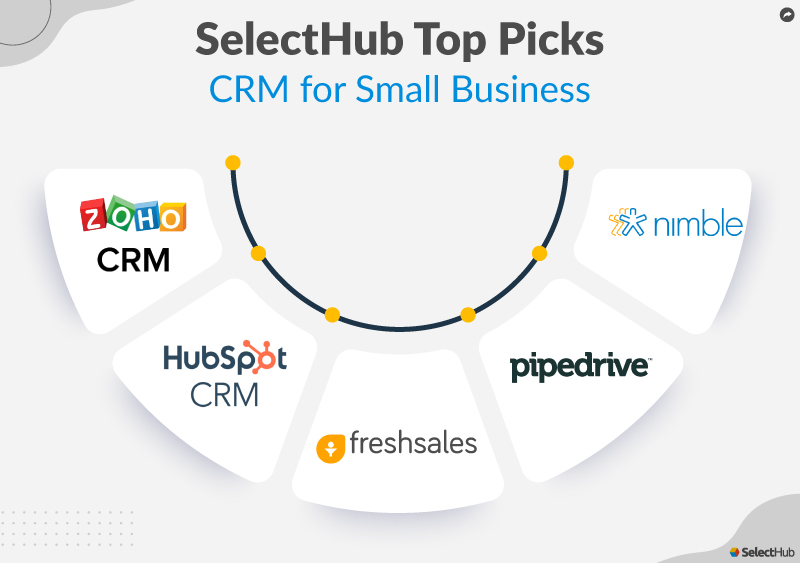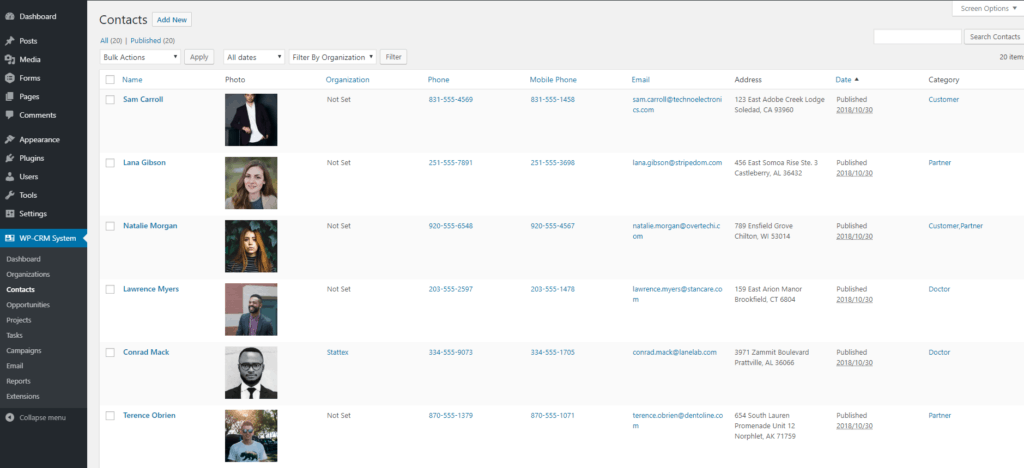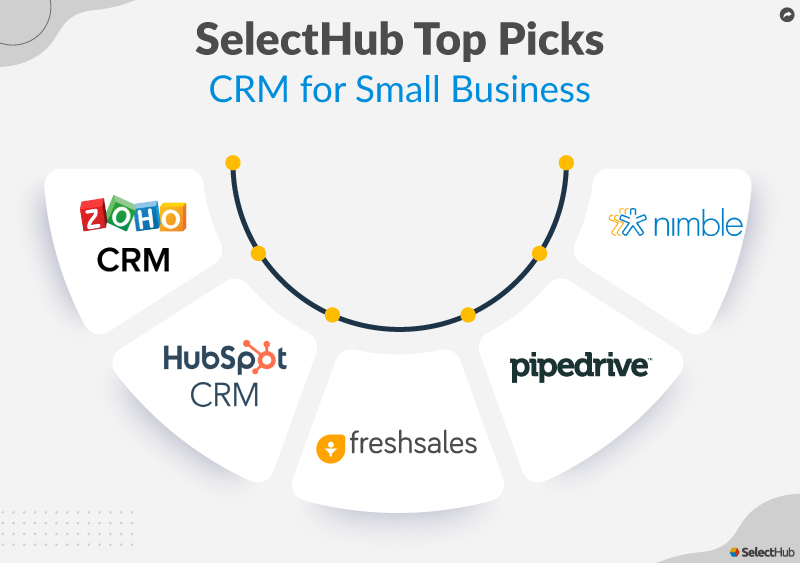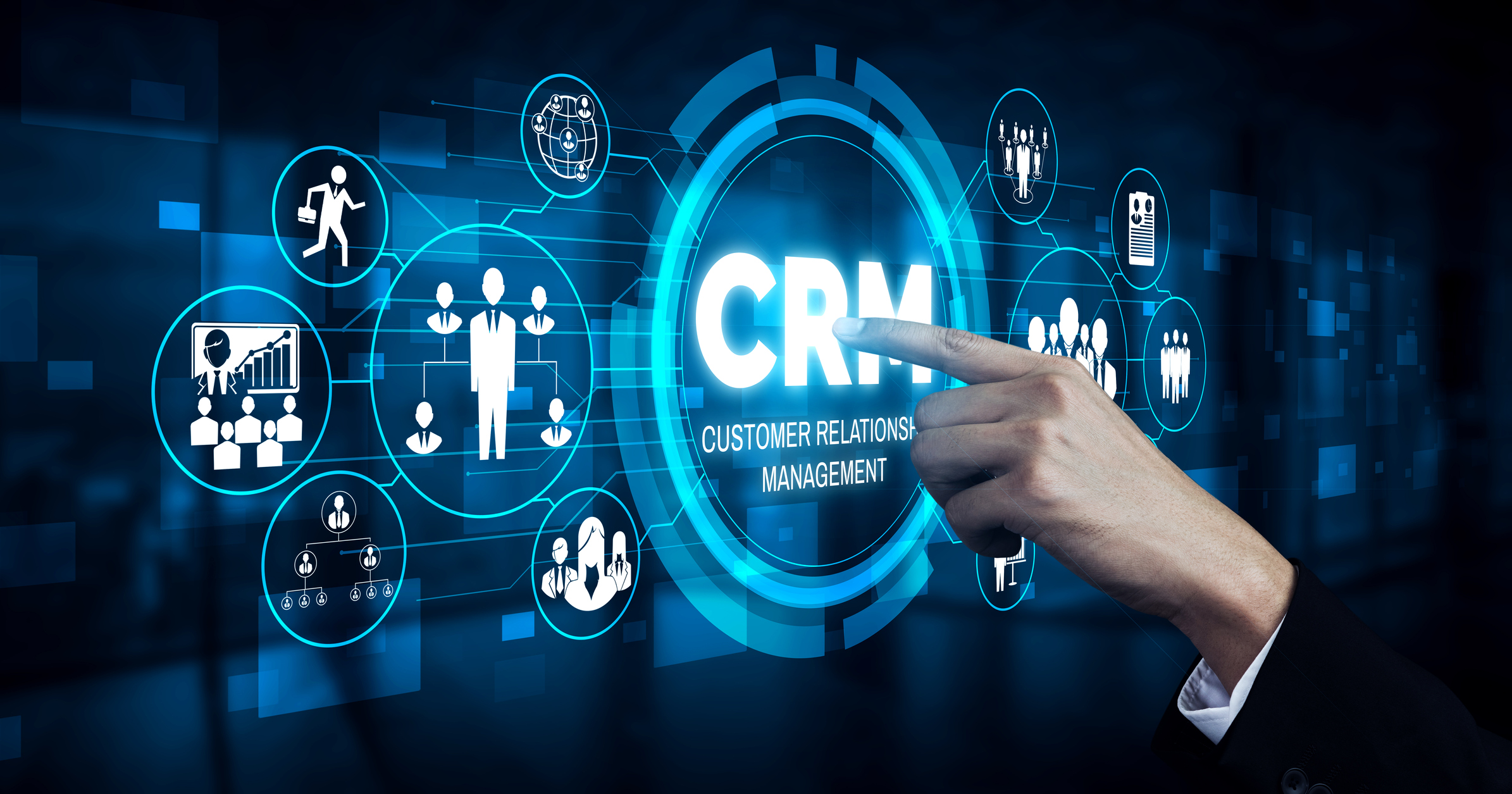Boosting Your Indonesian Small Business: A Comprehensive Guide to CRM

Boosting Your Indonesian Small Business: A Comprehensive Guide to CRM
In the dynamic landscape of Indonesian business, staying ahead requires more than just a good product or service. It demands a deep understanding of your customers and the ability to nurture those relationships effectively. This is where a Customer Relationship Management (CRM) system comes into play. For small businesses in Indonesia, a well-chosen CRM can be the difference between struggling to keep up and thriving in a competitive market. This comprehensive guide will delve into the world of CRM, specifically tailored for Indonesian small businesses, exploring its benefits, features, selection process, and implementation strategies.
What is CRM and Why Does Your Indonesian Small Business Need It?
At its core, a CRM system is a technology that manages all your company’s relationships and interactions with customers and potential customers. It helps you organize customer data, track interactions, automate tasks, and analyze customer behavior. For a small business, this translates to:
- Improved Customer Service: Respond to inquiries faster, resolve issues efficiently, and personalize interactions, leading to happier customers.
- Enhanced Sales Performance: Identify and nurture leads, track sales progress, and close deals more effectively.
- Increased Marketing Efficiency: Target the right customers with the right message at the right time, maximizing your marketing ROI.
- Better Data Management: Centralize customer information, making it easier to access, analyze, and utilize.
- Streamlined Operations: Automate repetitive tasks, freeing up your team to focus on more strategic initiatives.
In Indonesia, where customer relationships are often built on personal connections and trust, a CRM system can be invaluable. It helps you cultivate those relationships, fostering loyalty and driving repeat business. Think about it: in a market where word-of-mouth referrals are powerful, having a system that helps you manage those referrals, track customer satisfaction, and build those personal connections can make a significant difference. It’s about building a strong brand, and that starts with your customers.
Key Features to Look for in a CRM for Your Indonesian Small Business
Choosing the right CRM system is crucial. The features you need will depend on your specific business needs, but here are some essential features to consider:
1. Contact Management
This is the foundation of any CRM. It allows you to store and organize customer information, including contact details, purchase history, communication logs, and any other relevant data. Look for features like:
- Contact Segmentation: Grouping customers based on demographics, behavior, or purchase history.
- Customizable Fields: The ability to add custom fields to capture specific information relevant to your business.
- Data Import/Export: The ability to easily import and export customer data.
2. Sales Automation
Sales automation features streamline your sales process, saving time and improving efficiency. This includes:
- Lead Management: Tracking leads from initial contact to conversion.
- Sales Pipeline Management: Visualizing the sales process and tracking deals through different stages.
- Task Automation: Automatically assigning tasks, sending follow-up emails, and scheduling appointments.
- Reporting and Analytics: Generating reports on sales performance, lead conversion rates, and other key metrics.
3. Marketing Automation
Marketing automation features help you engage with customers and potential customers more effectively. Consider:
- Email Marketing: Creating and sending targeted email campaigns.
- Campaign Management: Tracking the performance of marketing campaigns.
- Social Media Integration: Connecting your CRM to your social media accounts.
- Landing Page Creation: Designing and managing landing pages to capture leads.
4. Customer Service and Support
Provide excellent customer service with features like:
- Ticketing System: Managing customer inquiries and support requests.
- Knowledge Base: Creating a repository of helpful articles and FAQs.
- Live Chat Integration: Providing real-time support through live chat.
5. Reporting and Analytics
Data-driven decisions are crucial for success. Ensure your CRM offers robust reporting and analytics capabilities:
- Customizable Dashboards: Displaying key performance indicators (KPIs) at a glance.
- Report Generation: Creating detailed reports on sales, marketing, and customer service performance.
- Data Visualization: Presenting data in charts and graphs for easy understanding.
6. Integrations
Your CRM should integrate seamlessly with other tools you use, such as:
- Email Marketing Platforms: (e.g., Mailchimp, Sendinblue)
- Accounting Software: (e.g., Xero, QuickBooks)
- E-commerce Platforms: (e.g., Shopify, WooCommerce)
- Social Media Platforms: (e.g., Facebook, Instagram, Twitter)
7. Mobile Accessibility
In today’s mobile world, having a CRM that is accessible on mobile devices is essential. This allows your team to access customer information, update records, and manage their tasks on the go.
Top CRM Systems for Indonesian Small Businesses
Several CRM systems cater specifically to the needs of small businesses in Indonesia. Here are some of the most popular and well-regarded options:
1. Hubspot CRM
HubSpot CRM is a popular choice for small businesses worldwide, and its free version is particularly appealing. It offers a user-friendly interface, comprehensive features, and excellent integration capabilities. Its free plan includes features for contact management, sales pipeline management, and basic marketing automation. HubSpot’s ease of use makes it a great starting point for businesses new to CRM.
- Pros: Free plan available, user-friendly interface, comprehensive features, strong integration capabilities, excellent support.
- Cons: The free plan has limitations, advanced features require paid subscriptions.
2. Zoho CRM
Zoho CRM is a powerful and affordable CRM system that offers a wide range of features, including sales automation, marketing automation, and customer service tools. It is highly customizable and integrates with other Zoho apps, as well as third-party applications. Zoho CRM provides robust functionality, suitable for growing businesses.
- Pros: Affordable pricing, feature-rich, highly customizable, strong integration capabilities.
- Cons: Can be complex to set up and configure, learning curve for new users.
3. Freshsales
Freshsales is a sales-focused CRM designed for small and medium-sized businesses. It offers features like lead scoring, sales pipeline management, and built-in phone and email integration. Freshsales is known for its intuitive interface and ease of use.
- Pros: User-friendly interface, sales-focused features, affordable pricing.
- Cons: Limited marketing automation features compared to some other options.
4. Pipedrive
Pipedrive is a sales CRM known for its visual sales pipeline and focus on deal management. It is a great option for businesses that need a clear overview of their sales process. Pipedrive is very intuitive, helping sales teams manage their deals effectively.
- Pros: Visual sales pipeline, easy to use, excellent for deal management.
- Cons: Limited marketing automation features, can be expensive for larger teams.
5. Salesforce Sales Cloud
Salesforce is a leading CRM provider, offering a wide range of solutions for businesses of all sizes. Salesforce Sales Cloud is a powerful and customizable CRM that can be tailored to meet the specific needs of your business. While it can be more complex to set up and manage, Salesforce’s extensive features make it a good choice for growing Indonesian businesses.
- Pros: Highly customizable, feature-rich, scalable, strong integration capabilities.
- Cons: Can be expensive, complex to set up and configure, steep learning curve.
Important Note: When choosing a CRM, consider the following factors:
- Ease of Use: Choose a system that is easy for your team to learn and use.
- Scalability: Select a CRM that can grow with your business.
- Integration: Ensure the CRM integrates with your existing tools.
- Pricing: Consider your budget and the different pricing plans offered.
- Customer Support: Make sure the provider offers excellent customer support.
How to Choose the Right CRM for Your Indonesian Small Business
Selecting the right CRM is not a one-size-fits-all approach. It’s about finding the perfect fit for your unique business requirements. Here’s a step-by-step guide to help you make the right decision:
1. Define Your Needs and Goals
Before you start looking at different CRM systems, take the time to clearly define your needs and goals. What are you hoping to achieve with a CRM? Do you need to improve customer service, increase sales, or streamline marketing efforts? Identify your key pain points and how a CRM can help address them. This will help you narrow down your options and choose a system that aligns with your business objectives.
2. Assess Your Current Processes
Understand your existing workflows. How do you currently manage customer data, sales processes, and marketing campaigns? Identify areas where you can improve efficiency and automation. This will help you determine which CRM features are most important to you.
3. Set Your Budget
CRM systems come in a variety of price points, from free to enterprise-level. Determine your budget and stick to it. Consider the total cost of ownership, including software licenses, implementation costs, training, and ongoing support. Remember that the most expensive system isn’t always the best, and a free or low-cost option might be sufficient for your needs.
4. Research Different CRM Options
Once you have a clear understanding of your needs, goals, and budget, start researching different CRM systems. Read reviews, compare features, and explore pricing plans. Consider the options mentioned earlier, and don’t be afraid to explore other systems. Look for CRM systems specifically designed for small businesses or those with a strong presence in the Indonesian market. Pay attention to features such as bahasa Indonesia support, and data security measures to ensure compliance with Indonesian regulations.
5. Request Demos and Free Trials
Most CRM providers offer demos and free trials. Take advantage of these opportunities to test the systems and see how they work. This will help you get a feel for the user interface, features, and overall usability. Ask your team members to try the systems and provide feedback.
6. Consider Integration Capabilities
Check whether the CRM integrates with the other tools you are already using, such as email marketing platforms, accounting software, and e-commerce platforms. Seamless integration will make your workflows smoother and more efficient.
7. Evaluate Customer Support
Make sure the CRM provider offers excellent customer support. Look for providers who offer support in bahasa Indonesia, as well as documentation, tutorials, and other resources. Consider the availability of phone, email, and chat support.
8. Plan for Implementation and Training
Implementing a CRM system requires planning and preparation. Develop a detailed implementation plan, including data migration, system configuration, and user training. Ensure your team receives adequate training on how to use the system effectively. Consider seeking help from a CRM consultant or implementation specialist if needed.
9. Start Small and Scale Gradually
If you’re new to CRM, it’s often best to start small and scale gradually. Begin by implementing the core features and gradually add more features as your team becomes more comfortable with the system. This will minimize disruption and help you avoid overwhelming your team. Don’t try to do everything at once.
10. Ongoing Evaluation and Optimization
Once your CRM is up and running, continuously evaluate its performance and make adjustments as needed. Regularly review your data and reports to identify areas for improvement. Stay up-to-date with the latest CRM features and best practices. The CRM landscape is constantly evolving, so it’s important to remain adaptable and keep improving your processes. Remember that this is not a one-off project; it’s an ongoing process of optimization.
Implementing Your CRM: A Step-by-Step Guide
Once you’ve chosen your CRM, the next step is implementation. This process can seem daunting, but with a well-defined plan, you can ensure a smooth transition. Here’s a step-by-step guide:
1. Data Migration
The first step is to migrate your existing customer data into the new CRM system. This involves extracting data from your current systems (e.g., spreadsheets, email clients), cleaning it, and importing it into the CRM. Make sure you back up your data before starting the migration process. Consider the following during data migration:
- Data Cleansing: Remove duplicate entries, correct errors, and standardize data formats.
- Data Mapping: Map your existing data fields to the corresponding fields in the CRM.
- Data Security: Ensure the secure transfer and storage of sensitive customer data.
2. System Configuration
Configure your CRM system to meet your specific business needs. This involves customizing the system’s settings, features, and workflows. Consider the following:
- User Roles and Permissions: Define user roles and assign appropriate permissions to control access to data and features.
- Customization: Customize the CRM’s fields, layouts, and reports to match your business processes.
- Workflow Automation: Set up automated workflows to streamline tasks and processes.
3. Training and Onboarding
Provide comprehensive training to your team on how to use the CRM system effectively. This includes training on all the features, functions, and workflows. Consider the following:
- Training Materials: Develop training materials, such as user guides, videos, and tutorials.
- Hands-on Training: Provide hands-on training sessions to allow users to practice using the system.
- Ongoing Support: Offer ongoing support to help users with any questions or issues.
4. Integration with Other Tools
Integrate your CRM with other tools you use, such as email marketing platforms, accounting software, and e-commerce platforms. This will enable data synchronization and streamline your workflows. Consider the following:
- API Integration: Utilize the CRM’s API to integrate with other systems.
- Third-Party Integrations: Use third-party integrations to connect with other tools.
- Data Synchronization: Ensure data is synchronized between the CRM and other systems.
5. Testing and Validation
Thoroughly test the CRM system before going live. Test all the features, functions, and workflows to ensure they are working correctly. Consider the following:
- User Acceptance Testing (UAT): Involve your team in testing the system to gather feedback and identify any issues.
- Data Validation: Verify that the data is accurate and complete.
- Performance Testing: Test the system’s performance under different load conditions.
6. Go-Live and Monitoring
Once you’ve completed the implementation process, it’s time to go live with the CRM system. Monitor the system’s performance and make adjustments as needed. Consider the following:
- Go-Live Plan: Develop a go-live plan to ensure a smooth transition.
- Monitoring: Monitor the system’s performance and track key metrics.
- Ongoing Support: Provide ongoing support to your team and address any issues.
Maximizing Your CRM Investment: Best Practices
Implementing a CRM is a significant investment. To maximize your return, it’s important to follow best practices. Here are some tips to help you get the most out of your CRM:
1. Data Accuracy and Integrity
The accuracy and integrity of your data are critical to the success of your CRM. Regularly clean and update your data to ensure it’s accurate and complete. Implement data validation rules to prevent errors. Train your team on the importance of data quality.
2. User Adoption
User adoption is essential for the success of your CRM. Encourage your team to use the system by providing training, support, and incentives. Highlight the benefits of using the CRM and address any concerns or resistance. Get buy-in from your team from the beginning.
3. Regular Reporting and Analysis
Regularly generate reports and analyze your data to track your performance and identify areas for improvement. Use the CRM’s reporting and analytics features to gain insights into your sales, marketing, and customer service efforts. This will help you make data-driven decisions and optimize your CRM usage.
4. Continuous Improvement
CRM is not a set-it-and-forget-it solution. Continuously evaluate your CRM usage and make adjustments as needed. Stay up-to-date with the latest CRM features and best practices. Seek feedback from your team and make improvements to optimize your CRM usage. Think of your CRM as a living, breathing element of your business.
5. Security and Privacy
Protect your customer data by implementing strong security measures. Use secure passwords, enable two-factor authentication, and regularly back up your data. Comply with all relevant data privacy regulations, such as GDPR and CCPA (even if not directly applicable in Indonesia, it’s good practice to adhere to data privacy principles). Ensure your CRM provider has robust security measures in place.
The Future of CRM for Indonesian Small Businesses
The future of CRM for Indonesian small businesses is bright, with technology continually evolving to provide even greater benefits. Here are some trends to watch:
1. Artificial Intelligence (AI) and Machine Learning (ML)
AI and ML are transforming the way businesses interact with customers. CRM systems are increasingly incorporating AI-powered features, such as chatbots, predictive analytics, and personalized recommendations. This can help small businesses provide better customer service, personalize marketing campaigns, and improve sales performance. Imagine AI assisting in identifying the best leads, predicting customer behavior, and automating responses, freeing up your team for more strategic tasks.
2. Mobile CRM
Mobile CRM is becoming increasingly important, allowing businesses to access customer data and manage their CRM from anywhere. This is particularly important in Indonesia, where mobile internet usage is high. The ability to access and update information on the go empowers your team, improving efficiency and responsiveness. Imagine your sales team closing deals from their smartphones while on the move.
3. Integration with Social Media
Social media is a powerful tool for businesses in Indonesia. CRM systems are increasingly integrating with social media platforms, allowing businesses to track customer interactions, manage social media campaigns, and provide customer service through social media channels. Imagine understanding your customer’s needs and sentiment through social media, gaining real-time insights that can shape your strategy.
4. Hyper-Personalization
Customers expect personalized experiences. CRM systems are enabling businesses to create hyper-personalized marketing campaigns, product recommendations, and customer service interactions. By leveraging data analytics, businesses can tailor their communications and offerings to individual customer preferences. Imagine a customer receiving a personalized offer based on their past purchases and browsing history.
5. Focus on Customer Experience (CX)
The focus on customer experience (CX) is becoming increasingly important. CRM systems are evolving to help businesses deliver exceptional customer experiences by providing a 360-degree view of the customer, enabling seamless interactions across all channels, and personalizing customer interactions. Think about anticipating your customer’s needs and providing exceptional service at every touchpoint.
Conclusion: Embracing CRM for Growth in Indonesia
For Indonesian small businesses, adopting a CRM system is no longer a luxury; it’s a necessity. It is a powerful tool that can help you build stronger customer relationships, improve sales performance, and drive business growth. By carefully selecting the right CRM, implementing it effectively, and following best practices, you can unlock the full potential of your customer data and gain a competitive edge in the Indonesian market. The journey to a more customer-centric business starts with the right CRM. Don’t hesitate to explore your options, experiment, and find the perfect fit for your business. Embrace the power of CRM, and watch your Indonesian small business flourish.




